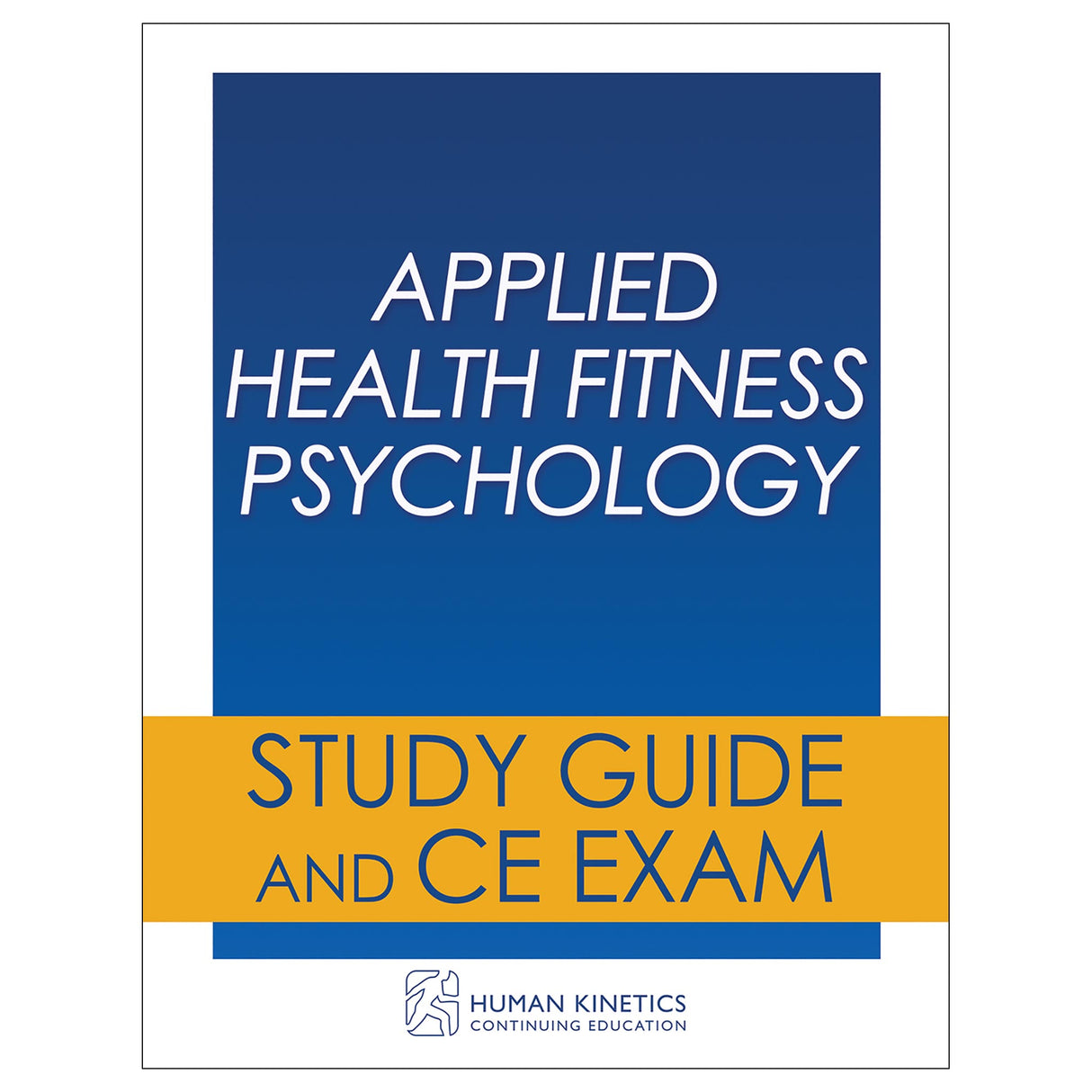Applied Health Fitness Psychology Online CE Course Without Book
Author: Human Kinetics
$83.00 USD
Human Kinetics strongly recommends that you complete your exam within the calendar year of your date of purchase to ensure approved credits do not expire for your organization.
This package includes:
- Online study guide
- Online continuing education exam
This study guide reinforces the content from the book Applied Health Fitness Psychology (which is not included with this package). It helps you prepare for the 95-question exam that tests your understanding of the concepts presented.
Once you pass the exam, you can print a certificate for continuing education credits.
Learning Objectives
After completing this course, you will be able to do the following:
- Define and differentiate among the concepts of applied health psychology, fitness psychology, and exercise psychology.
- Explain the process of replacing negative habits with healthier routines.
- List the factors that reduce and improve an exerciser’s motivation.
- Differentiate between stress and anxiety.
- Outline the physical, cognitive, and emotional obstacles to changing unhealthy behavior patterns.
- Identify the differences among personality traits, styles or orientations, and behavioral tendencies and know which are susceptible to change and which are not.
- Understand the role of culture in maintaining health-promoting rituals and the implication of those cultural rituals for health professionals.
- Identify the types of exercise adherence and compliance.
- Explain the reasons why some people begin and maintain an exercise program while others drop out.
- Set goals and teach proper goal-setting techniques to clients.
- Determine the unique needs of various special populations that separate them from the so-called normal population when engaging in regular physical activity.
- Provide strategies for eating more responsibly and strategically to improve energy, physical performance, and weight control.
- List the ethical issues that are common in most professional organizations.





